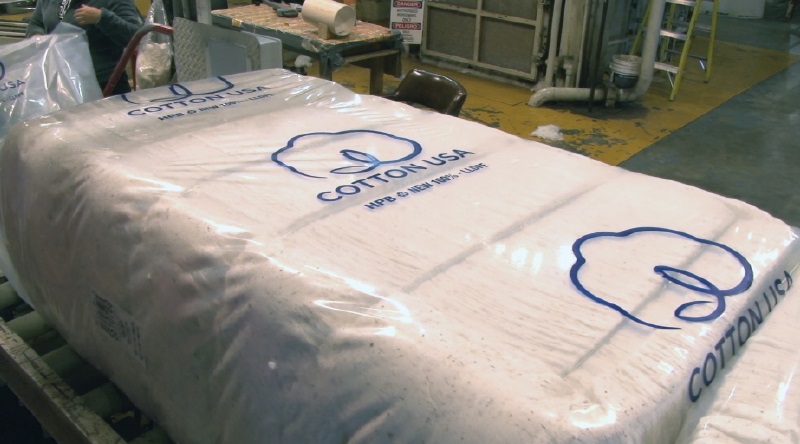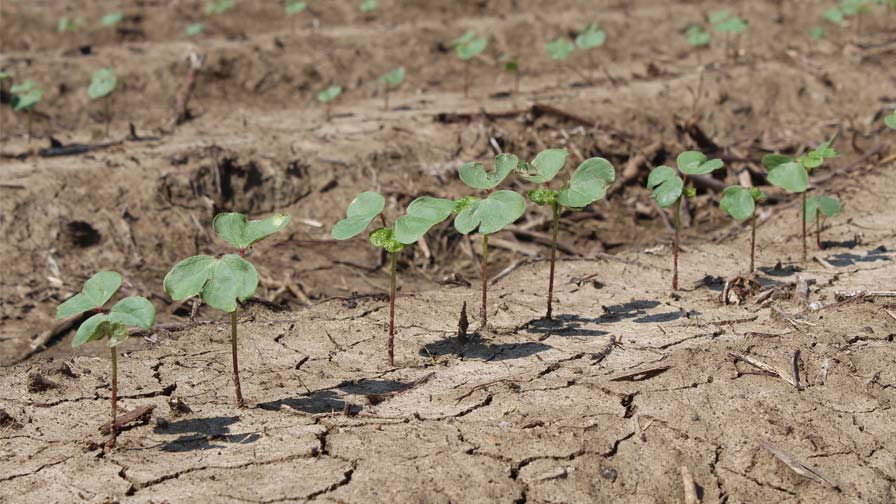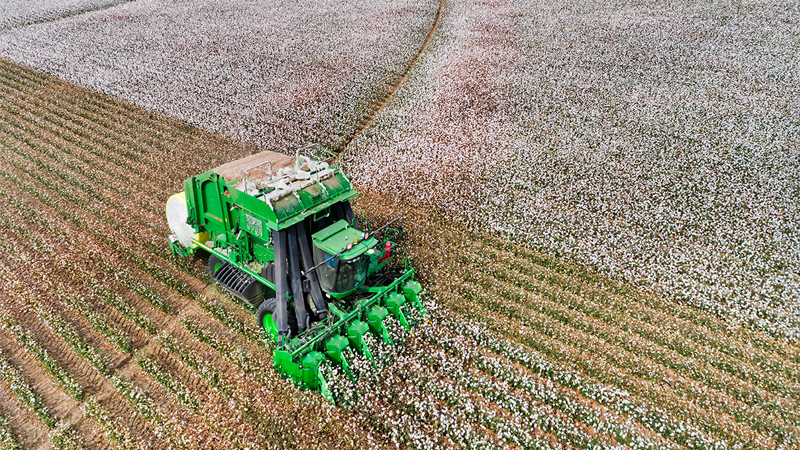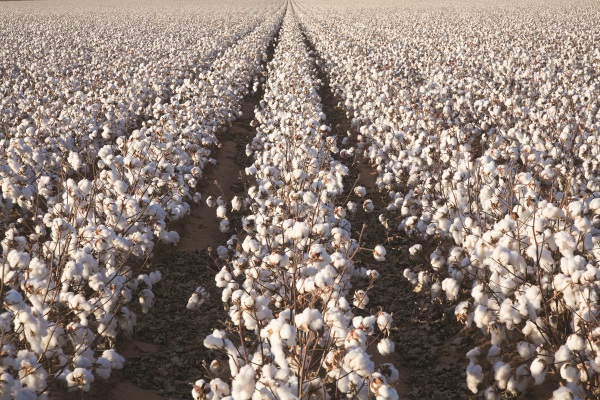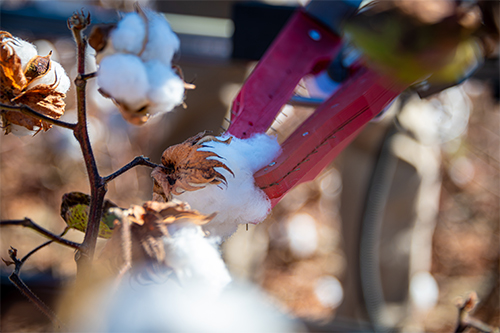Nicosia Bringing a Different Perspective to Industry Leadership
We’re all familiar with the seven segments of the U.S. cotton industry that make up the National Cotton Council (NCC) — producers, ginners, warehousers, merchants, cottonseed, cooperatives, and manufacturers. All segments are equally represented in NCC leadership. Yet, from the Council’s founding in the lobby of the Peabody Hotel in Memphis in 1938, only two merchants have served as NCC chairman.
As 2024 Chairman, Joe Nicosia becomes number three. It’s an honor and challenge he doesn’t take lightly.
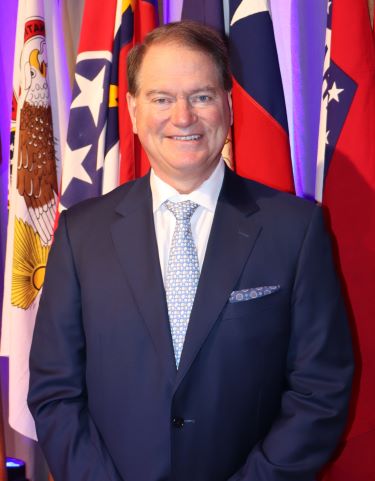 Joe Nicosia (Photo: Beck Barnes)
Joe Nicosia (Photo: Beck Barnes)
“Traditionally, it doesn’t happen very often,” says Nicosia, Head of Cotton at Louis Dreyfus Company, during a recent Cotton Companion podcast interview. “I feel particularly honored to be able to do that.
“If you go back many, many years ago, there seemed to have been a lot of choices in the industry between segments. And it created some question about whether people were aligned in philosophy and in policy. But over the last 15 to 20 years, that’s really disappeared. I try to look at it as we’re not seven segments in NCC. We’re one industry, and we have to move forward with one voice, especially with the challenges and difficulties that we see today in the cotton industry.”
For those in or who follow the cotton industry, Nicosia has built a well-earned reputation as an influential voice on global production and marketing issues. His annual cotton market outlook presentation at the Mid-South Farm and Gin Show is a must-hear session, and he’s a sought-after speaker for industry meetings around the world. He’s held leadership positions with the American Cotton Shippers Association and the International Cotton Association…and now, the National Cotton Council.
Not bad for a city boy from Chicago.
“I went to school at Dartmouth and had the choice of trying to continue to get my MBA at the University of Chicago but decided I wanted to go ahead and pursue a career,” he recalls. “I always had a love for the competitiveness of trading. I took a job with Louis Dreyfus, starting in the Grain division. I moved three times in the first six months, from Minneapolis to Springfield, IL, and finally to Memphis when Louis Dreyfus bought Allenberg Cotton Company.
“I was the first trader transferred to Memphis, and I had never seen a cotton plant in my life,” he says. “That’s the beginning of my cotton story, and I haven’t moved since. It’s been my career, my life.”
Challenges Ahead
There are no shortages of issues and challenges facing cotton in 2024. Competition from other cotton-producing countries. The continuing farm bill debate. U.S. and global economics. Marketing and logistics. Nicosia knows there’s a lot of work yet to be done. It’s why he believes it’s critical for the entire industry to pull together to meet those and other challenges head on.
“We’re being challenged on many fronts,” he says, “so there’s a lot of work to be done. I really feel that it’s a great opportunity for us to bring the group together as one industry to meet the challenges that we’re facing.”
Take, for example, the farm bill. Nicosia points out that work done to date by the NCC has been readily accepted by each industry segment.
“There’s no doubt that certain things are critically important,” he says. “We have to increase the safety net to the growers. That’s number one. If we don’t have a crop, nobody has a business. We’ve been devastated by the droughts in Texas. But more importantly, the world is changing where we’re being challenged by Brazil every year, more and more.
“Brazil is going to pass us in production this year, and they’re not far away from passing us on being the number one exporter of cotton in the world,” he adds. “One of the things I’m going to talk about and make sure that people understand is if you don’t compete, you will get beat. Just doing okay is no longer okay. We need to do better in a lot of the aspects we have in our industry. And I’m going to really push to try to see if we can’t do that.”
Challenges to agricultural production continue to be on the NCC radar, especially in light of the recent legal rulings regarding dicamba use in cotton.
“It’s no secret that many of the practices are being challenged continuously in agriculture across the whole spectrum,” Nicosia says. “That’s why it’s so important to have the Council focused on this, because it gives us a forum to fight back and be able to present our voice in those discussions. We’re going to have to continue to work through that and hope we can find some solutions and common ground from a product standpoint.”
And then, there’s also an election year to maneuver through.
“When we look at Congress, we have influential people on both sides from the Republican and Democrat side and in the ag committees,” he explains. “They’re not all from the south. Obviously, there’s agriculture in the north as well. So, it is critically important for us to be able to have those relationships.
“And not just in an election year. Sometimes post-election years are even more important because as you get new members into Congress, they need to understand what our issues are. It’s important for us to get in front of them to explain what our challenges are, why we have the policies that we have, and why we have the asks that are up there.”
Despite the domestic and global challenges, Nicosia remains confident in the strength, history, and resilience of the U.S. cotton industry.
“We don’t have a problem selling U.S. cotton,” he says. “We have to make sure we are able to grow cotton profitably in this country in order to be able to maintain our customers, our market share, and the longevity of the great history that we’ve had in this country, especially in the cotton industry.
“I’ve been around a long time too,” he muses. “I love what I do. Our company trades in many different commodities. But there is no industry like the cotton industry, both from the ability of people to network together and to come together for common causes. It’s just a different fraternity that exists within our industry.
“You know, I would do this for free. I’m glad I don’t have to do it for free, but I would do it for free because, you know, it’s my passion.”



